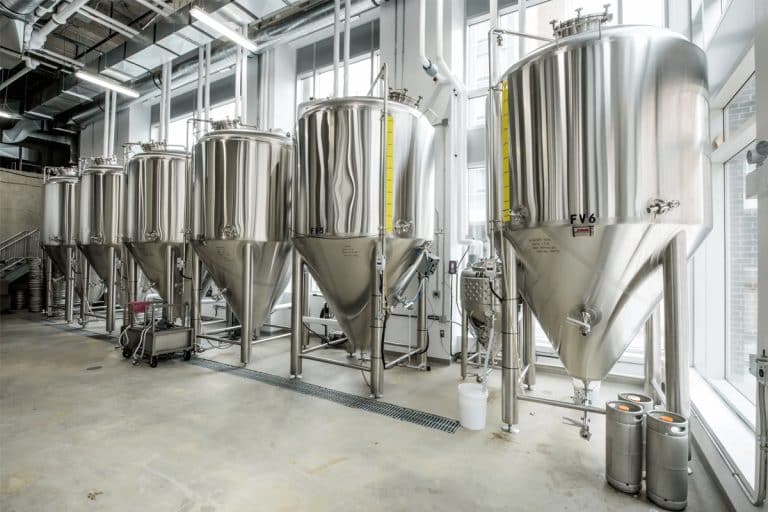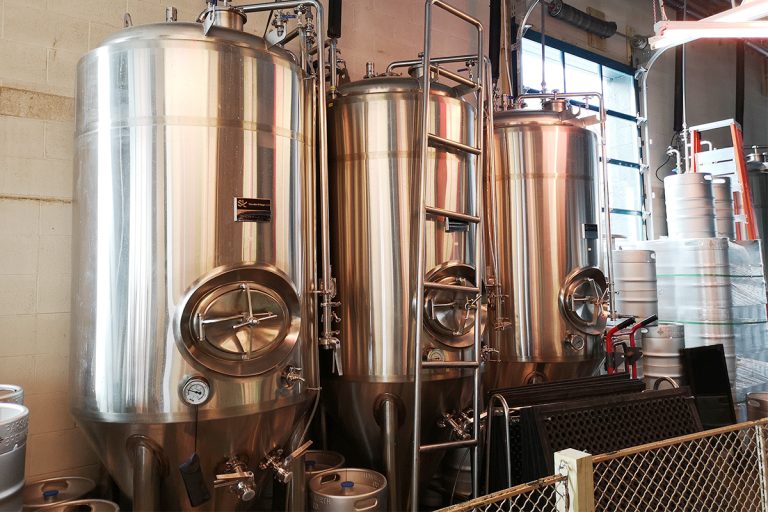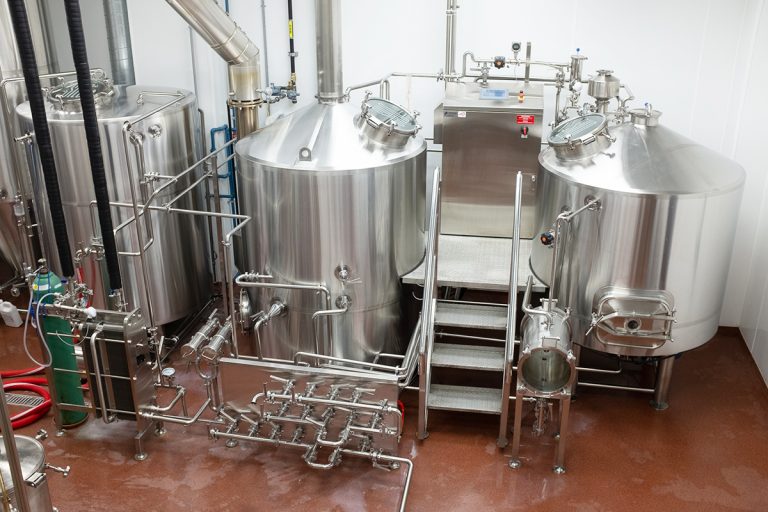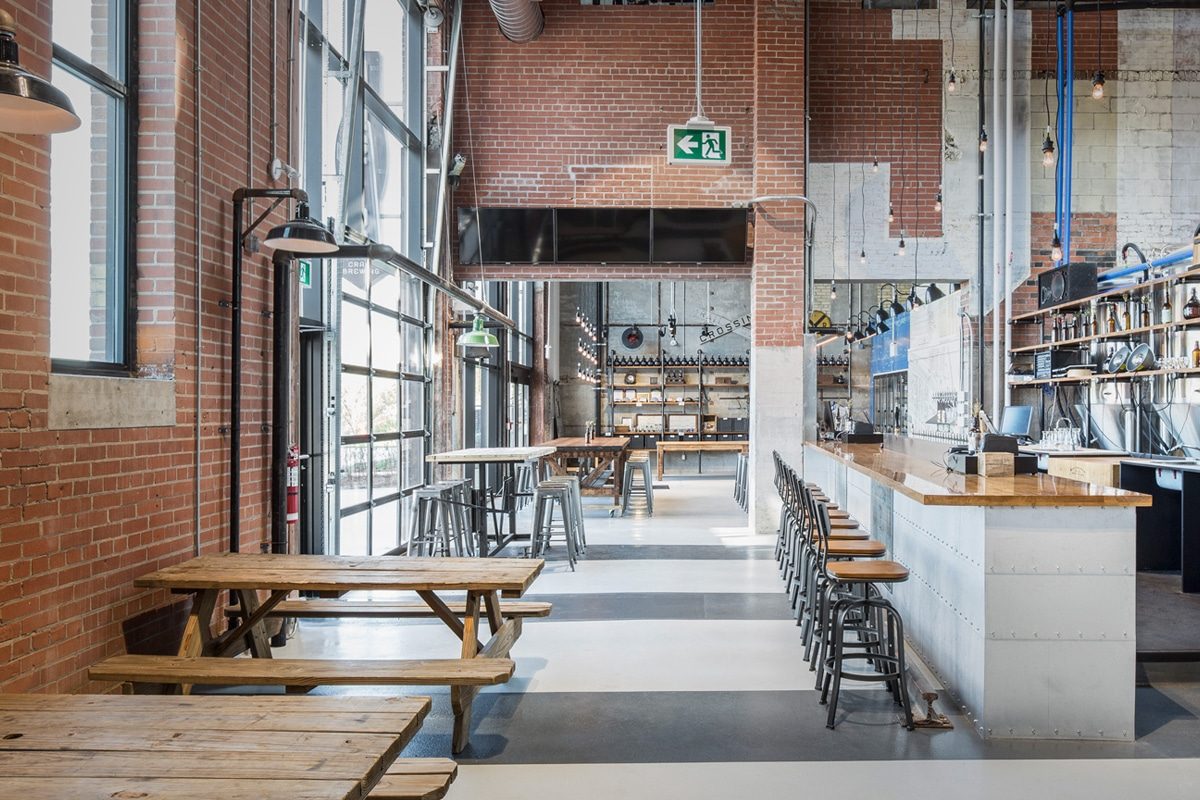
Consider Business Issues Before Opening A Brewery
In the world of craft beer, where creativity flows as freely as the brews themselves, the dream of opening a brewery captivates the minds of many passionate individuals. The allure of crafting unique flavors, building a community of beer enthusiasts, and leaving an indelible mark on the thriving craft beer landscape is undeniably exciting. However, beneath the frothy surface of this dream lies a complex tapestry of business considerations that aspiring brewery owners must navigate.
From market analysis and legal compliance to equipment procurement and branding, the path to brewery ownership is paved with challenges and opportunities alike. In this comprehensive guide, we will explore the essential business issues that aspiring brewery owners need to consider before embarking on their entrepreneurial journey. By delving into these critical aspects, individuals can equip themselves with the knowledge and insights necessary to set their brewery on a path to success in an increasingly competitive and dynamic industry.
Complete Guide
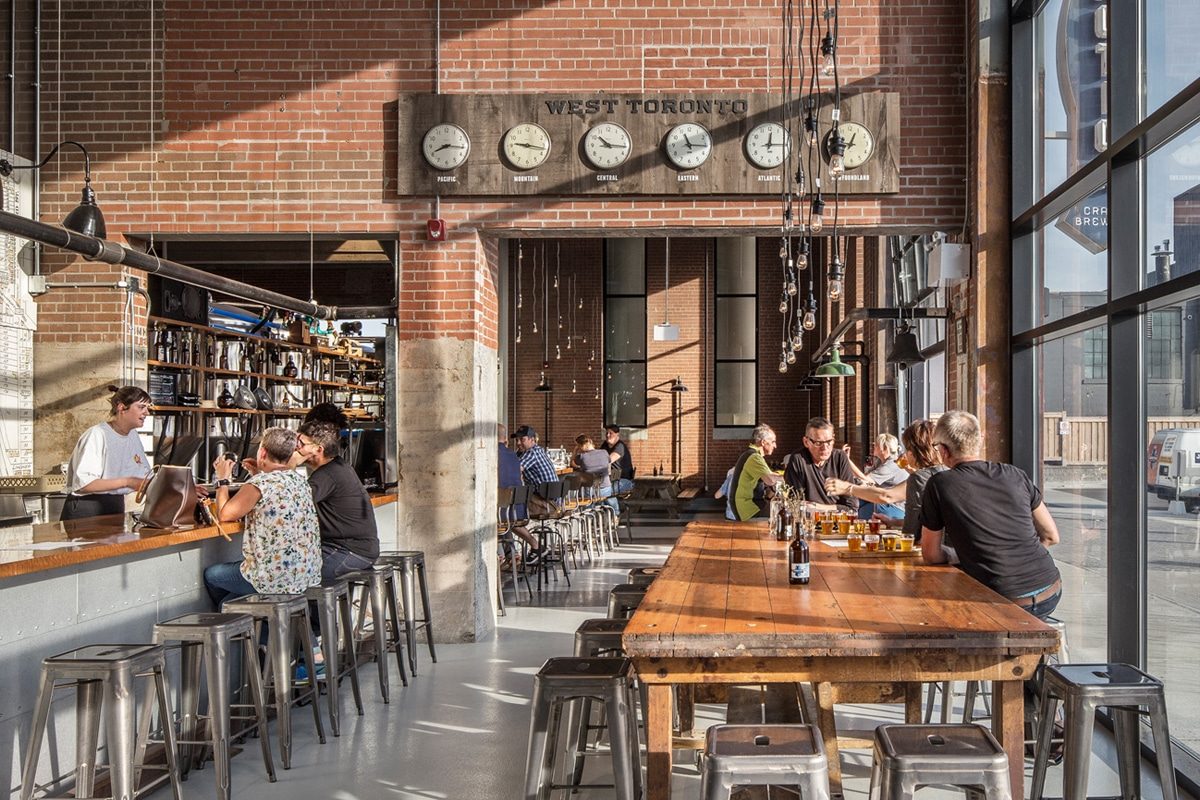
Market analysis and research
Building a successful brewery business starts with a deep understanding of the market landscape, where understanding consumer preferences, industry trends, and competitive dynamics is critical. Before fermenting your first batch of beer, conducting thorough market analysis and research lays the foundation for informed decision-making and strategic planning.
Demographics and consumer preferences
Start by dissecting the demographics of your target market. Explore factors like age, income level, education, and lifestyle preferences to gain insights into your potential customer base. Are there clear patterns in consumer behavior that indicate demand for craft beer in your area? Understanding the demographics of your market will guide product development, pricing strategies, and marketing efforts.
Industry trends and market dynamics
Keep your finger on the pulse of the craft beer industry, identify emerging trends, and anticipate changes in consumer preferences. Are there new beer styles growing in popularity? Is there an innovative brewing technique that has captured the attention of beer lovers? Analyzing industry trends can keep you ahead of the curve and make your brewery stand out in a crowded market.
Competition analysis
Thoroughly assess the competitive landscape by researching existing breweries in your area. Evaluate their products, brand strategy, distribution channels, and customer engagement strategies. What makes each brewery unique? Where are the gaps or opportunities for differentiation? Understanding your competitors’ strengths and weaknesses allows you to carve out a unique position in the market and capitalize on untapped niches.
Market segmentation and targeting
Segment your target market based on demographics, psychographics, and behavioral characteristics to effectively tailor your products and marketing strategies. Is there a specific consumer segment that aligns with your brewery’s vision and products? By digging into your niche and catering to specific preferences, you can create deeper connections with your customers and build a loyal following.
Demand forecasting and sales forecasting
Leverage market research data and industry insights to forecast craft beer demand in your area and predict potential sales. When estimating market demand, consider seasonality, economic conditions, and competitive pressures. Developing realistic sales forecasts allows you to set achievable goals and allocate resources effectively.
Market analysis and research are like a compass guiding your brewery through the rough seas of the craft beer industry. By delving into the nuances of consumer behavior, industry trends, and competitive dynamics, aspiring brewery owners can chart a path to success with confidence and clarity.
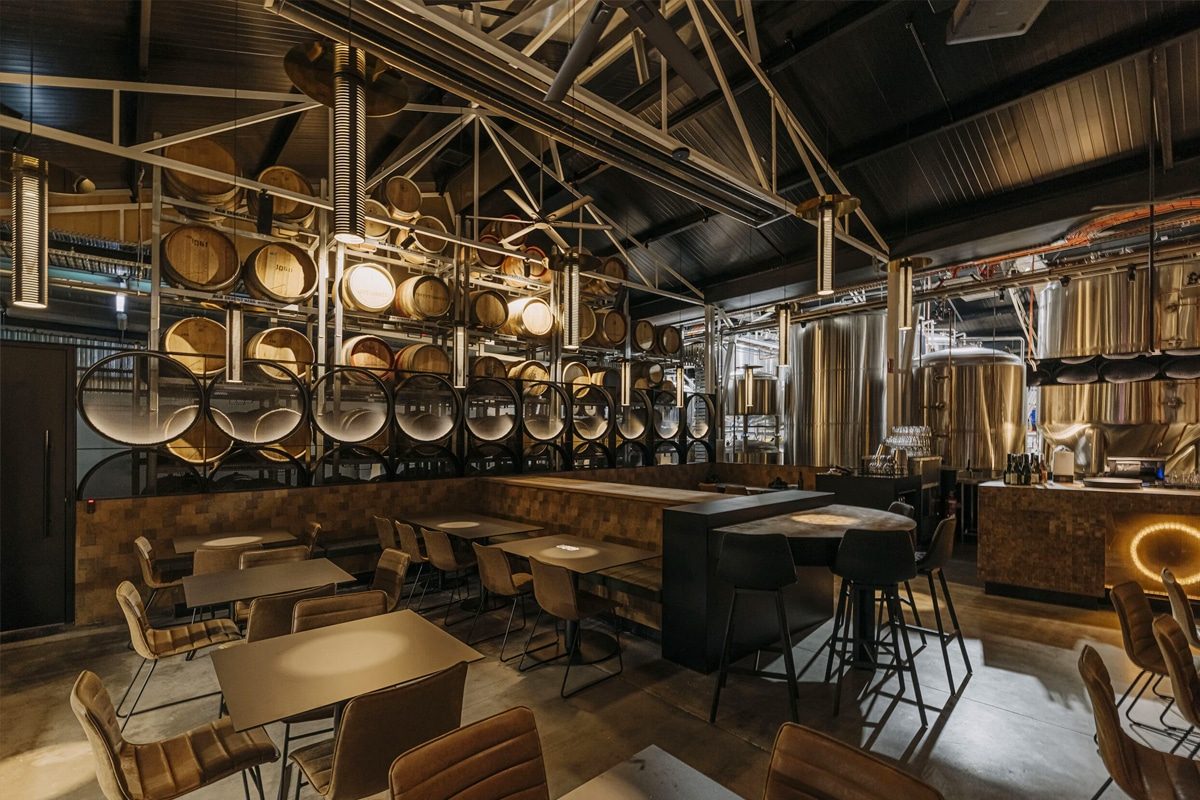
Business planning and strategy
Behind every successful brewery is a well-crafted business plan, a roadmap that guides the brewery through the ebbs and flows of the industry, ensuring that every pour leads to prosperity. Business planning and strategy are the solid pillars upon which a brewery lays its foundation, including vision, goals, market positioning, financial projections, and operating framework.
Define a brewery’s identity
At the heart of every brewery is its identity—a unique blend of vision, mission, and values that make it stand out in the crowded craft beer space. Clearly and firmly define your brewery’s identity. What sparked your passion for winemaking? What values do you want to be reflected in every pint you pour? Your brewery’s identity should resonate with your target audience, creating a connection that goes beyond the liquid in the glass.
Focus on Success
Develop a roadmap to success with clear and measurable goals. Define your brewery’s goals, whether it’s capturing a certain market share, achieving revenue milestones, or becoming a community hub for beer lovers. Make sure your goals are smart, specific, measurable, achievable, relevant, and time-bound. Setting high standards while keeping goals achievable is the secret to continued growth and achievement.
Navigate the market landscape
The brewery’s success depends on its ability to navigate a complex market landscape with skill and agility. Develop a comprehensive marketing plan including branding, promotions, and customer engagement strategies. Identify your target market segments and tailor your marketing efforts to resonate with their preferences and desires. From social media campaigns to community events, leverage every touchpoint to build brand loyalty and awareness.
Crunch numbers
Behind the art of brewing is financial science. Develop a detailed financial plan that includes start-up costs, operating expenses, revenue projections, and cash flow management. Conduct thorough research to estimate your start-up expenses, including equipment purchases, facility lease or purchase costs, permits and licenses, and marketing campaigns. Consider ongoing operating expenses such as utilities, raw materials, staffing, and maintenance.
Reduce risk
In an unpredictable business environment, risks lurk around every corner. Identify potential risks and develop effective risk mitigation strategies. Whether it’s a supply chain disruption, regulatory compliance issues, or an economic downturn, proactive risk management ensures your brewery is prepared to weather any storm. Develop contingency plans and buffers to protect against unforeseen challenges so your brewery remains resilient and adaptable in the face of adversity.
Adapt and innovate
In the dynamic world of craft beer, adaptability is the key to longevity. Pay attention to industry trends, consumer preferences, and technological advancements, and continuously innovate to stay ahead of the curve. Embrace experimentation and creativity, fostering a culture of innovation that permeates every aspect of the brewery—from brewing technology to marketing strategy. By embracing change and growth, your brewery can carve out a niche in the competitive craft beer space.
In the exhilarating journey of brewery entrepreneurship, business planning and strategy are the guiding stars that illuminate the path to success. By defining your brewery’s identity, setting ambitious yet attainable goals, navigating the market terrain with finesse, crunching the numbers with precision, mitigating risks effectively, and embracing adaptation and innovation, you can craft a blueprint for brewery success that stands the test of time.

Legal and Regulatory Compliance
Embarking on the journey of opening a brewery requires more than a mastery of malt and hops, it demands a keen understanding of the intricate legal and regulatory landscape governing the world of craft beer. Aspiring brewers must set sail with diligence, ensuring their vessel is equipped to navigate the complexities of federal, state, and local regulations, lest they find themselves shipwrecked in a sea of legal troubles.
Licensing and Permits
Securing the proper licenses and permits is the first port of call for any brewery. On a federal level, obtaining a Brewer’s Notice from the Alcohol and Tobacco Tax and Trade Bureau (TTB) is imperative. Simultaneously, brewers must navigate the requirements of state and local authorities, obtaining permits for manufacturing, distribution, and sales. Legal experts well-versed in alcohol beverage law can be valuable allies in navigating this bureaucratic maze.
Health and Safety Compliance
Creating a safe and hygienic brewing environment is not just good business; it’s a legal obligation. Breweries must adhere to health and safety regulations, ensuring that their facilities meet sanitation standards, hygiene practices are impeccable, and employees are trained in safe handling procedures. Regular inspections and following health and safety guidelines can help avoid legal pitfalls.
Taxation Considerations
The taxman casts a long shadow over the brewery business. Understanding the intricacies of excise taxes on beer, sales taxes, and payroll taxes is essential. Tax professionals specializing in the alcohol beverage industry can help breweries navigate the nuances of taxation, ensuring compliance and identifying opportunities for tax incentives and deductions.
Distribution Laws
The distribution landscape varies from state to state, with some regions tightly regulating relationships between breweries, wholesalers, and retailers. Familiarize yourself with your state’s distribution laws, as they can significantly impact your brewery’s ability to sell and distribute beer. Some states enforce strict franchise laws, while others offer more flexibility. Understanding these laws can influence your business model and growth strategy.
Labeling and Packaging Compliance
The art of presenting your beer to the world comes with its own set of rules. Labeling and packaging compliance involves meeting specific requirements for content, format, and placement of information on beer labels. Failure to comply can result in fines and recalls. Engage legal professionals with expertise in alcohol labeling to ensure your packaging not only stands out on the shelves but also meets regulatory standards.
Environmental Regulations
Breweries, like any manufacturing facility, must navigate environmental regulations. Proper waste disposal, water usage, and energy efficiency are not just ethical considerations but legal obligations. Staying in harmony with environmental regulations not only avoids legal troubles but also contributes to a positive brand image among environmentally conscious consumers.
Legal Consultation
In the world of brewery ownership, legal consultation is not a luxury; it’s a necessity. Building a relationship with legal professionals who specialize in alcohol beverage law can safeguard your brewery against legal pitfalls. Whether interpreting complex regulations, assisting in licensing procedures, or representing your interests in legal matters, legal experts are your allies in ensuring compliance with the ever-evolving legal landscape.
As you set sail on the seas of brewery ownership, navigating the legal and regulatory currents is as crucial as perfecting the art of brewing itself. A well-informed and legally compliant brewery not only avoids the stormy waters of legal troubles but also lays the foundation for a smooth and prosperous voyage in the craft beer industry.

Location and Facility Planning
In the world of brewery ownership, the significance of location and facility planning cannot be overstated. Like the perfect blend of malt and hops in a finely crafted beer, the right location and facility are essential ingredients for the success of any brewery venture. Aspiring brewers must carefully consider a myriad of factors, from accessibility and infrastructure to zoning regulations and space requirements, to ensure their brewery has a solid foundation to flourish.
Accessibility and Visibility
The location of your brewery can make or break its success. Choose a location with high visibility and easy accessibility to attract foot traffic and drive-by customers. Consider proximity to main roads, public transportation, and popular attractions or neighborhoods. A location with ample parking and outdoor seating options can enhance the customer experience and encourage repeat visits.
Zoning and Regulations
Navigating zoning regulations and local ordinances is a crucial aspect of location planning. Ensure that your chosen location is zoned for brewery operations and complies with all applicable regulations regarding land use, building codes, noise ordinances, and environmental permits. Engage with local authorities and zoning officials early in the planning process to avoid potential delays or complications.
Space Requirements
Assess your brewery’s space requirements based on your production capacity, equipment needs, and future growth projections. Calculate the square footage needed for brewing, fermentation, packaging, storage, and taproom operations. Consider factors such as ceiling height, floor load capacity, utility access, and layout flexibility when evaluating potential facilities. A well-designed brewery layout optimizes workflow efficiency and maximizes productivity.
Infrastructure and Utilities
Evaluate the infrastructure and utilities available at potential locations to ensure they meet your brewery’s needs. Adequate electrical capacity, water supply, wastewater disposal, and HVAC systems are essential for brewery operations. Conduct thorough inspections of plumbing, electrical, and HVAC systems to identify any potential issues or upgrades required. Consider the cost and feasibility of making necessary infrastructure improvements when budgeting for facility expenses.
Community and Market Analysis
Consider the demographics and market dynamics of the surrounding community when choosing a location for your brewery. Research consumer preferences, competition, and local beer culture to gauge demand and identify opportunities for differentiation. Engage with the community through market research, focus groups, and outreach efforts to understand their needs and preferences. Building strong ties with the local community can help drive business and create a loyal customer base.
Aesthetics and Brand Identity
The aesthetic appeal of your brewery plays a significant role in shaping your brand identity and customer perception. Choose a facility that aligns with your brewery’s branding and reflects its personality and values. Consider factors such as architectural style, interior design, signage, and landscaping to create a memorable and inviting atmosphere for customers. Invest in branding elements that showcase your brewery’s unique identity and differentiate it from competitors.
Flexibility and Growth Potential
Anticipate future growth and expansion when selecting a brewery location and facility. Choose a facility with the flexibility to accommodate increased production capacity, taproom expansions, and additional amenities as your brewery grows. Consider leasing options that offer room for expansion or renewal terms that allow for flexibility in adapting to changing business needs. A strategic approach to facility planning ensures your brewery is poised for long-term success and scalability.
In the journey of brewery ownership, the location and facility serve as the stage upon which your brewing dreams unfold. By carefully considering factors such as accessibility, zoning, space requirements, infrastructure, community dynamics, aesthetics, and growth potential, aspiring brewers can lay the groundwork for a successful and thriving brewery venture.
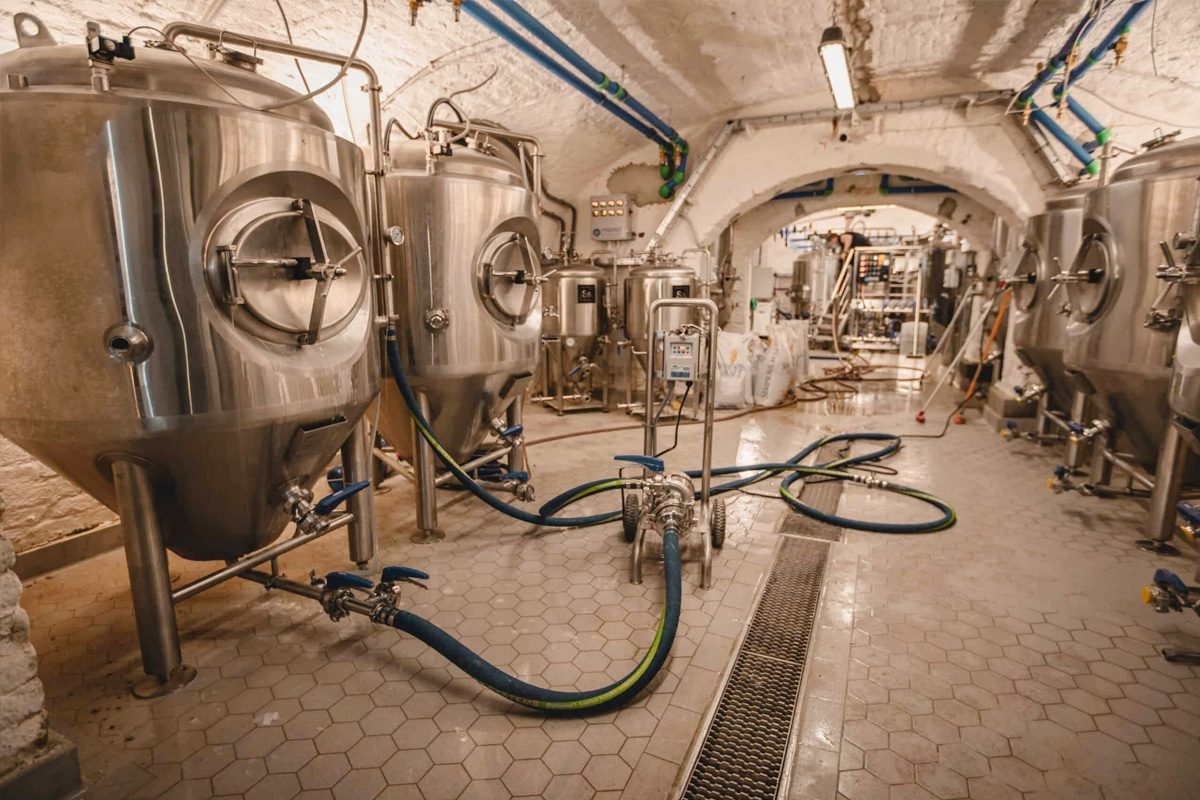
Equipment and Production
In the alchemy of brewing, where malt meets hops and yeast works its magic, the choice of equipment and the efficiency of production processes play a pivotal role in crafting exceptional beer. From the mash tun to the fermenters, every piece of equipment is a cog in the intricate machinery of brewing, ensuring consistency, quality, and scalability.
Investing in Quality Equipment
At the heart of any brewery lies its brewing equipment, the backbone of the operation. Investing in quality equipment that aligns with your production needs and quality standards is paramount. Research different types of brewing equipment, considering factors such as batch size, brewing capacity, automation, and energy efficiency. Whether starting small with a pilot system or aiming big with a production brewery, prioritize equipment that balances functionality, durability, and affordability.
Essential Brewing Equipment
- Mash Tun: This vessel is where malted barley meets hot water, converting starches into fermentable sugars.
- Brew Kettle: The brew kettle is where the wort is boiled, hops are added, and flavors are infused.
- Fermentation Tanks: These vessels are where the magic happens, as yeast transforms wort into beer during fermentation.
- Bright Tanks: Essential for conditioning and carbonating beer before packaging.
- Heat Exchanger: Rapidly cools the wort post-boil to prevent off-flavors.
- Packaging Equipment: From bottling lines to canning machines, these ensure your beer is packaged and ready for distribution.
Layout and Workflow Optimization
Efficient production begins with thoughtful layout and workflow optimization. Arrange equipment in a logical sequence that minimizes unnecessary movement and streamlines production. Allocate space for brewing, fermentation, packaging, and storage, ensuring proper ventilation and drainage for a clean and safe working environment. Employee training ensures your team operates equipment safely and efficiently, maintaining consistency and quality in every brew.
Quality Control Protocols
Maintaining consistent quality is the hallmark of a successful brewery. Implement robust quality control protocols to monitor beer quality throughout the brewing process, from raw ingredients to finished products. Regular sensory evaluations, laboratory tests, and quality checks ensure your beer meets the highest standards and exceeds customer expectations. Investing in staff training on quality control procedures empowers your team to uphold the brewery’s commitment to excellence.
Production Efficiency and Scaling Up
As your brewery grows, production efficiency becomes paramount. Invest in scalable equipment and processes that accommodate increased demand while maintaining quality and consistency. Anticipate future growth and plan for equipment upgrades or expansions accordingly. Tracking key performance indicators such as production efficiency, yield, and inventory turnover helps identify areas for improvement and optimize production processes.
Ancillary Equipment and Supplies
In addition to brewing equipment, ancillary equipment and supplies are essential for brewery operations. Pumps, hoses, valves, tanks, filters, and cleaning and sanitation chemicals are indispensable tools in the brewer’s arsenal. Consider the total cost of ownership, including installation, shipping, taxes, and ongoing maintenance, when budgeting for equipment purchases and supplies.
In the symphony of brewing, equipment and production processes harmonize to create the perfect pint. By investing in quality equipment, optimizing production workflows, implementing rigorous quality control measures, and planning for scalability, brewery owners lay the groundwork for success.
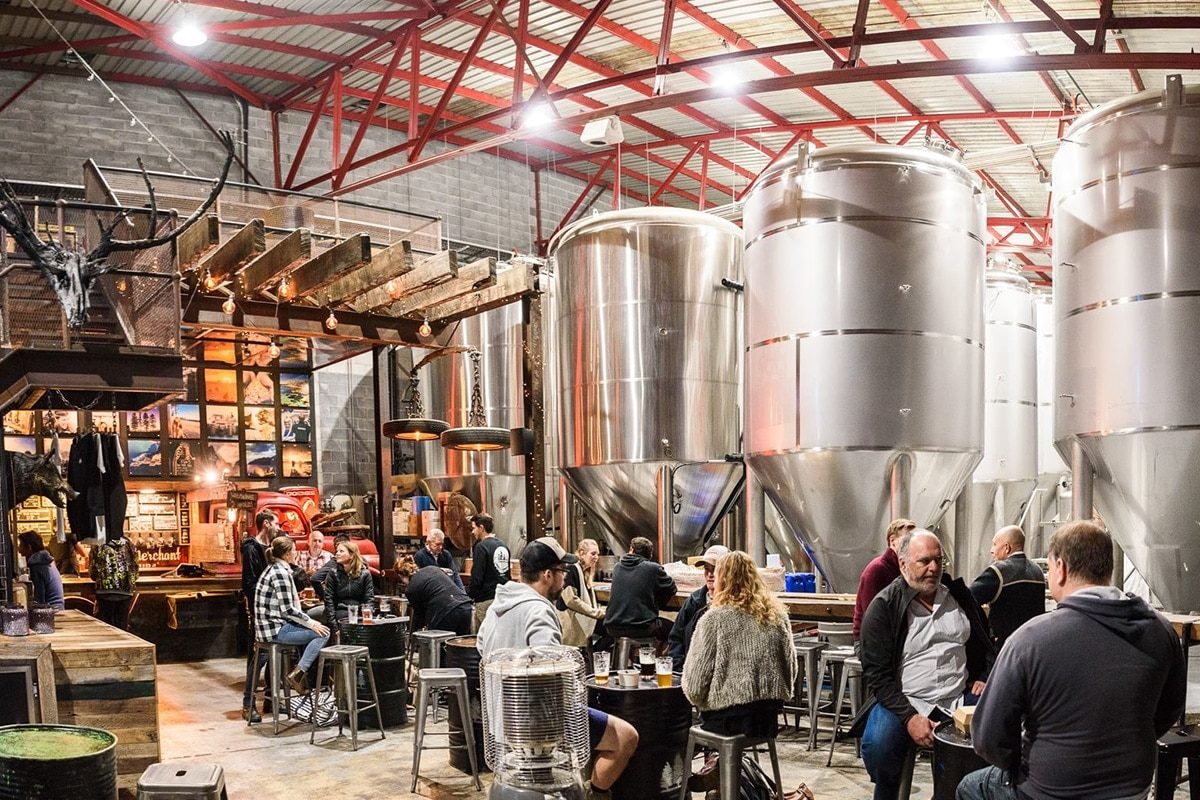
Financial Management and Funding
In the realm of brewery entrepreneurship, financial management, and funding are the rudders that steer the vessel toward success. From securing initial funding to managing ongoing expenses and navigating cash flow challenges, astute financial planning is essential at every stage of the brewing journey. Let’s raise a glass to unravel the intricacies of financial management and funding in the brewery business.
Developing a Comprehensive Business Plan
The robust business plan serves as the compass guiding your brewery through the turbulent waters of the brewing industry. Outline your brewery’s vision, mission, goals, target market, competitive analysis, marketing strategies, and financial projections. A well-crafted business plan not only serves as a roadmap for success but also demonstrates credibility and foresight to potential investors and lenders.
Securing Funding
Launching a brewery requires significant capital investment, from purchasing equipment and securing permits to leasing or purchasing a facility and covering initial operating expenses. Explore various funding options, including:
- Self-Funding: Utilize personal savings, assets, or investments to finance your brewery. Self-funding demonstrates commitment and confidence in your venture.
- Bank Loans: Approach banks or financial institutions for loans to cover startup costs. Prepare a solid business plan and financial projections to support your loan application.
- Investor Capital: Seek investment from angel investors, venture capitalists, or private equity firms interested in supporting brewery startups. Be prepared to offer equity or a stake in your business in exchange for funding.
- Crowdfunding: Launch a crowdfunding campaign on platforms like Kickstarter or Indiegogo to raise capital from a large pool of individual backers. Engage your community and offer enticing rewards or incentives to encourage contributions.
- Government Grants and Programs: Research government grants, loans, or assistance programs available to small businesses, including breweries. Explore opportunities at the federal, state, and local levels for funding support.
Budgeting and Financial Planning
Once funding is secured, diligent budgeting and financial planning are essential for managing expenses, allocating resources, and achieving financial sustainability. Develop a detailed budget that covers all startup and ongoing operational expenses, including equipment purchases, lease or mortgage payments, utilities, payroll, raw materials, marketing, and maintenance costs. Monitor your budget closely and adjust expenses as needed to ensure financial stability and profitability.
Cash Flow Management
Cash flow is the lifeblood of any business, and effective cash flow management is critical for brewery success. Monitor cash inflows and outflows carefully, projecting future cash needs and identifying potential cash flow bottlenecks. Maintain adequate cash reserves to cover unexpected expenses or fluctuations in revenue. Implement strategies to optimize cash flow, such as negotiating favorable payment terms with suppliers, incentivizing early payments from customers, and minimizing unnecessary expenses.
Financial Reporting and Analysis
Regular financial reporting and analysis provide valuable insights into your brewery’s financial health and performance. Generate monthly, quarterly, and annual financial statements, including income statements, balance sheets, and cash flow statements. Analyze key financial metrics such as gross profit margins, operating expenses, inventory turnover, and return on investment. Use this data to make informed decisions, identify areas for improvement, and adjust your business strategy as needed.
Tax Planning and Compliance
Navigating the labyrinth of tax regulations is a crucial aspect of brewery ownership. Work with tax professionals or accountants with expertise in the alcohol beverage industry to develop tax-efficient strategies, maximize deductions, and ensure compliance with federal, state, and local tax laws. Stay informed about tax incentives, credits, and deductions available to breweries, such as the federal excise tax credits for small brewers.
In the ever-evolving landscape of brewery entrepreneurship, financial management and funding serve as the bedrock upon which successful ventures are built. From securing initial funding to managing cash flow, budgeting, financial reporting, and tax planning, astute financial management is essential at every turn. By navigating the fiscal waters with foresight, diligence, and strategic planning, brewery owners can chart a course toward sustainable growth, profitability, and long-term success.
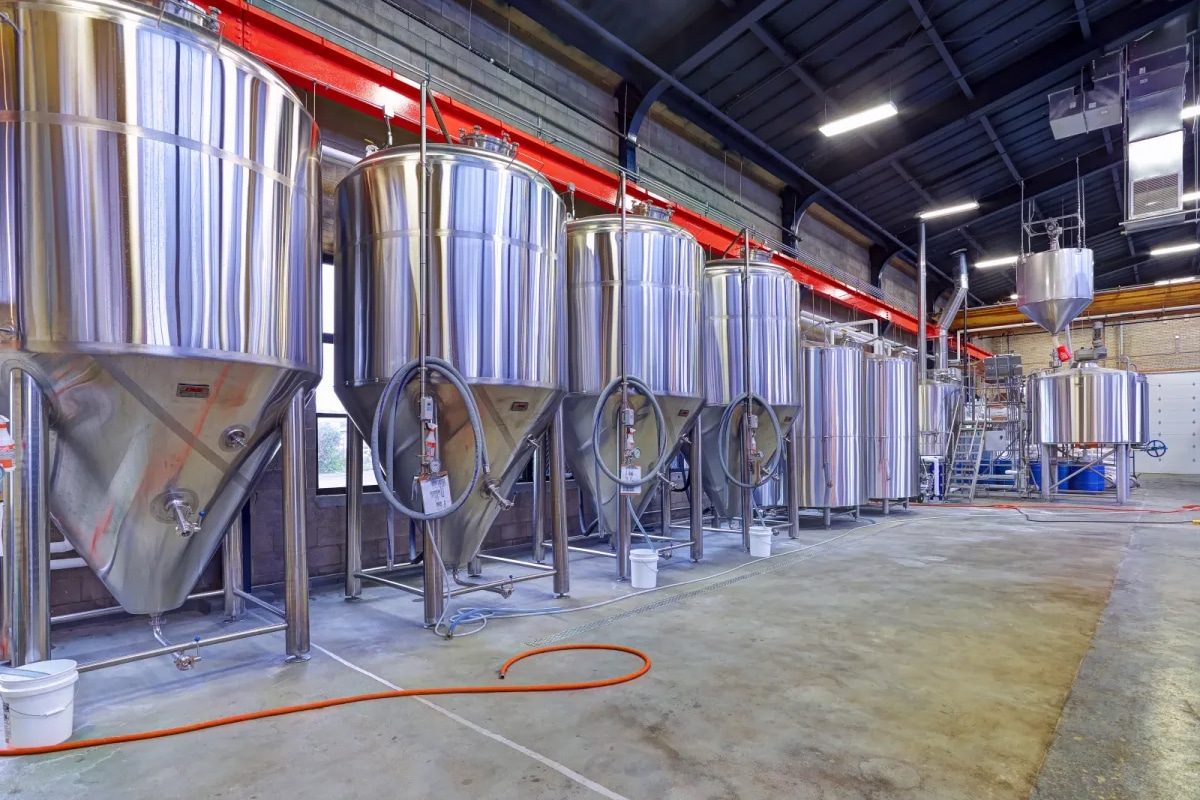
Brand Development and Marketing
In the bustling landscape of craft beer, where every pint tells a story, brand development, and marketing play a pivotal role in setting your brewery apart from the competition. From defining your brewery’s identity to engaging with customers and building brand loyalty, strategic branding, and marketing efforts are essential for success in the beer business.
Defining Your Brewery's Identity
At the heart of every successful brewery lies a distinctive brand identity, a unique blend of values, personality, and story that resonates with consumers. Start by defining your brewery’s mission, vision, and core values. What sets your brewery apart? Is it your commitment to quality, innovation, sustainability, or community engagement? Articulate your brand’s personality and positioning to create a memorable and authentic identity that captivates your target audience.
Creating Compelling Branding Elements
Once you’ve defined your brewery’s identity, bring it to life through compelling branding elements. Develop a memorable brewery name, logo, and visual identity that reflects your brand’s personality and resonates with consumers. Consider the aesthetics of your taproom, packaging, merchandise, and marketing materials, ensuring consistency and cohesiveness across all touchpoints. Invest in professional design and branding services to ensure your brewery’s visual identity stands out in a crowded market.
Telling Your Story
Behind every great beer is a great story waiting to be told. Share your brewery’s story, its origins, inspirations, and journey, with consumers. Highlight the passion, craftsmanship, and creativity that go into every batch of beer. Use storytelling to create emotional connections with consumers, fostering loyalty and advocacy for your brand. Leverage storytelling across your website, social media, packaging, and brewery events to engage and captivate your audience.
Building a Strong Online Presence
In today’s digital age, a strong online presence is essential for brewery success. Create a professional website that showcases your brewery’s story, beer offerings, taproom experience, and upcoming events. Optimize your website for search engines to improve visibility and attract organic traffic. Establish active profiles on social media platforms such as Facebook, Instagram, and Twitter to engage with customers, share updates, and build a community around your brand.
Engaging Content Marketing
Content is king in the world of marketing, and breweries have a wealth of stories to share. Develop a content marketing strategy that educates, entertains, and engages your target audience. Create informative and entertaining content, such as blog posts, videos, podcasts, and social media posts, that highlight brewing techniques, beer styles, food pairings, brewery events, and industry trends. Consistent and valuable content builds brand awareness, credibility, and loyalty among consumers.
Participating in Events and Festivals
Beer festivals, tasting events, and community gatherings offer valuable opportunities to showcase your brewery and connect with potential customers. Participate in local beer festivals and events to introduce consumers to your beer and brewery experience. Host or sponsor events such as beer tastings, brewery tours, live music performances, and charity fundraisers to engage with your local community and create memorable experiences for attendees.
Collaborating and Networking
Collaboration is a cornerstone of the craft beer industry. Partner with other breweries, local businesses, artists, musicians, or nonprofits to create collaborative beers, events, or marketing campaigns. Collaborations help you reach new audiences, generate buzz, and strengthen your brand’s credibility and reputation. Attend industry events, join professional associations, and network with fellow brewers and industry professionals to stay informed, inspired, and connected.
Measuring and Analyzing Results
As you implement your branding and marketing initiatives, it’s essential to measure their effectiveness and make data-driven decisions. Track key performance indicators (KPIs) such as website traffic, social media engagement, email open and click-through rates, event attendance, and sales conversions. Analyze the data to identify trends, patterns, and areas for improvement, and adjust your marketing strategy accordingly. By measuring results and optimizing your approach, you can maximize the impact of your branding and marketing efforts.
In the competitive world of craft beer, brand development, and marketing are essential ingredients for brewery success. By defining your brewery’s identity, creating compelling branding elements, telling your story, building a strong online presence, engaging in content marketing, participating in events and festivals, collaborating and networking, and measuring and analyzing results, you can create a memorable and impactful brand that resonates with consumers and stands the test of time.

Staffing and Training
In the bustling world of brewery operations, where every batch of beer is a labor of love, staffing, and training are the yeast that ferments success. From brewing and production to taproom service and management, assembling a skilled and passionate team is essential for delivering exceptional beer and creating memorable experiences for customers. Let’s explore the nuances of staffing and training in the brewery business, ensuring that every member of your team is equipped to thrive in their role.
Staffing Needs Assessment
Begin by conducting a thorough assessment of your brewery’s staffing needs, considering the various roles required to operate your brewery efficiently. Key positions may include brewers, cellar operators, packaging specialists, taproom staff, sales representatives, administrative personnel, and management roles. Determine the optimal staffing levels based on your brewery’s size, production capacity, customer demand, and growth projections.
Recruiting and Hiring
Recruiting top talent is a cornerstone of brewery success. Develop a recruitment strategy to attract skilled and passionate individuals who align with your brewery’s culture and values. Utilize multiple channels for recruiting, including job boards, industry associations, social media, and referrals from within the brewing community. Conduct thorough interviews and screening processes to assess candidates’ qualifications, experience, and cultural fit before extending job offers.
Training and Onboarding
Effective training and onboarding are essential for setting new hires up for success. Develop a comprehensive training program that covers brewery operations, safety protocols, quality standards, customer service, and company policies and procedures. Provide hands-on training and mentorship to ensure that new hires understand their roles and responsibilities and feel confident in performing their duties. Assign experienced staff members as mentors to facilitate learning and integration into the team.
Continuous Education and Skill Development
Brewing is both an art and a science, and ongoing education is crucial for keeping your team’s skills sharp and staying ahead of industry trends. Invest in opportunities for continuous education and skill development, such as workshops, seminars, certifications, and industry conferences. Encourage staff members to pursue certifications in brewing, beer tasting, and hospitality to enhance their expertise and credibility.
Cross-Training and Versatility
Foster a culture of versatility and cross-training within your brewery team. Encourage staff members to learn multiple aspects of brewery operations, from brewing and packaging to taproom service and sales. Cross-training not only increases operational flexibility and efficiency but also empowers team members to take on new challenges and advance their careers within the brewery.
Communication and Feedback
Open and transparent communication helps create a positive work environment and ensures alignment among team members. Establish regular team meetings, one-on-one check-ins, and channels for feedback and suggestions. Encourage an atmosphere of collaboration, respect, and mutual support, where every team member feels valued and heard.
Employee Recognition and Rewards
Recognizing and rewarding exceptional performance is key to motivating and retaining talented employees. Implement employee recognition programs that celebrate achievements, milestones, and contributions to the brewery’s success. Offer incentives such as bonuses, employee of the month awards, and opportunities for career advancement to show appreciation for hard work and dedication.
Safety and Wellness
Prioritize the safety and wellness of your brewery team by implementing comprehensive safety protocols and promoting a healthy work-life balance. Provide training on safety procedures, equipment operation, and emergency protocols to prevent accidents and injuries. Offer wellness programs, mental health resources, and employee assistance programs to support the physical and emotional well-being of your staff.
In the fast-paced and dynamic world of brewery operations, staffing and training are the keys to unlocking the full potential of your brewery team. By recruiting top talent, providing comprehensive training and onboarding, fostering continuous education and skill development, promoting versatility and cross-training, facilitating open communication and feedback, recognizing and rewarding exceptional performance, prioritizing safety and wellness, you can cultivate a team that is passionate, skilled, and dedicated to brewing excellence.
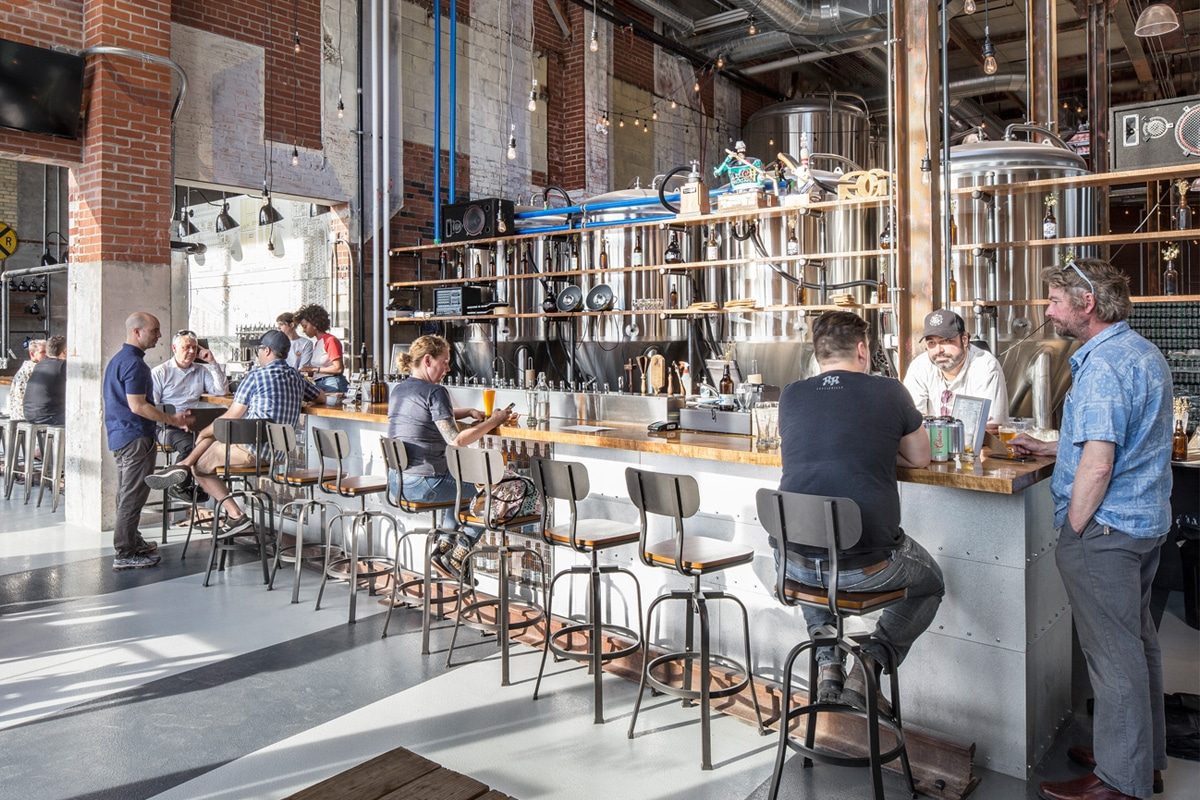
Risk Management and Compliance
In the world of brewery ownership, success is not just about crafting exceptional beer—it’s also about navigating the intricate web of risks and compliance requirements that come with operating a brewery. From regulatory hurdles to operational challenges, proactive risk management and compliance strategies are essential for steering your brewery toward smooth sailing and long-term success. Let’s explore the critical aspects of risk management and compliance in the brewery business.
Regulatory Compliance
Navigating the regulatory landscape is a cornerstone of brewery ownership. Ensure compliance with federal, state, and local regulations governing alcohol production, distribution, and sales. Obtain the necessary licenses, permits, and approvals from agencies such as the Alcohol and Tobacco Tax and Trade Bureau (TTB), state alcohol control boards, and local health departments. Stay abreast of changes in regulations and proactively adapt your operations to remain compliant.
Quality Control and Assurance
Maintaining quality standards is paramount in the brewing industry. Implement rigorous quality control and assurance protocols to ensure that your beer meets the highest standards of taste, consistency, and safety. Conduct regular sensory evaluations, laboratory tests, and quality checks throughout the brewing process to identify and address potential issues before they impact product quality and customer satisfaction.
Supply Chain Management
The supply chain is the lifeline of your brewery, and effective management is essential for ensuring a steady flow of raw materials, equipment, and packaging supplies. Develop relationships with reliable suppliers and vendors, and establish contingency plans to mitigate risks such as supply shortages, price fluctuations, and delivery delays. Monitor and assess the performance of your suppliers regularly to maintain quality and reliability.
Operational Risks
Running a brewery involves a myriad of operational risks, from equipment malfunctions and ingredient shortages to human errors and accidents. Implement robust safety protocols, equipment maintenance schedules, and emergency response plans to mitigate these risks and ensure the safety of your employees and customers. Conduct regular safety inspections and train your staff on proper safety procedures to minimize the likelihood of accidents and injuries.
Financial Risk Management
Financial stability is essential for brewery sustainability. Identify and assess financial risks such as cash flow fluctuations, debt obligations, and economic downturns. Develop contingency plans and financial reserves to weather unexpected challenges and maintain liquidity. Monitor key financial metrics such as revenue, expenses, profit margins, and debt levels regularly to identify potential risks and take proactive measures to address them.
Brand Reputation Management
Your brewery’s brand reputation is one of its most valuable assets. Protect and enhance your brand reputation by delivering high-quality products, providing exceptional customer service, and actively engaging with your community. Respond promptly and transparently to customer feedback, reviews, and complaints, and address any issues or concerns with integrity and professionalism. Invest in marketing and public relations efforts to promote positive brand associations and mitigate reputational risks.
Legal Liability and Insurance
Brewery operations carry inherent legal liability risks, including product liability, premises liability, and liquor liability. Protect your brewery against potential legal claims and lawsuits by obtaining appropriate insurance coverage, such as general liability insurance, product liability insurance, and liquor liability insurance. Work with an experienced insurance broker or agent to assess your coverage needs and identify gaps in coverage that may expose your brewery to risks.
Crisis Management and Business Continuity
Prepare for the unexpected by developing a crisis management and business continuity plan. Identify potential crisis scenarios such as product recalls, natural disasters, or public health emergencies, and outline strategies for responding effectively. Establish communication protocols, emergency contacts, and contingency plans to ensure business operations can continue uninterrupted during times of crisis.
In the dynamic and competitive landscape of brewery ownership, risk management, and compliance are essential components of success. By proactively addressing regulatory requirements, maintaining quality standards, managing supply chain risks, mitigating operational risks, managing financial risks, protecting brand reputation, addressing legal liability, and preparing for crises, you can safeguard your brewery against potential threats and position it for sustainable growth and resilience.
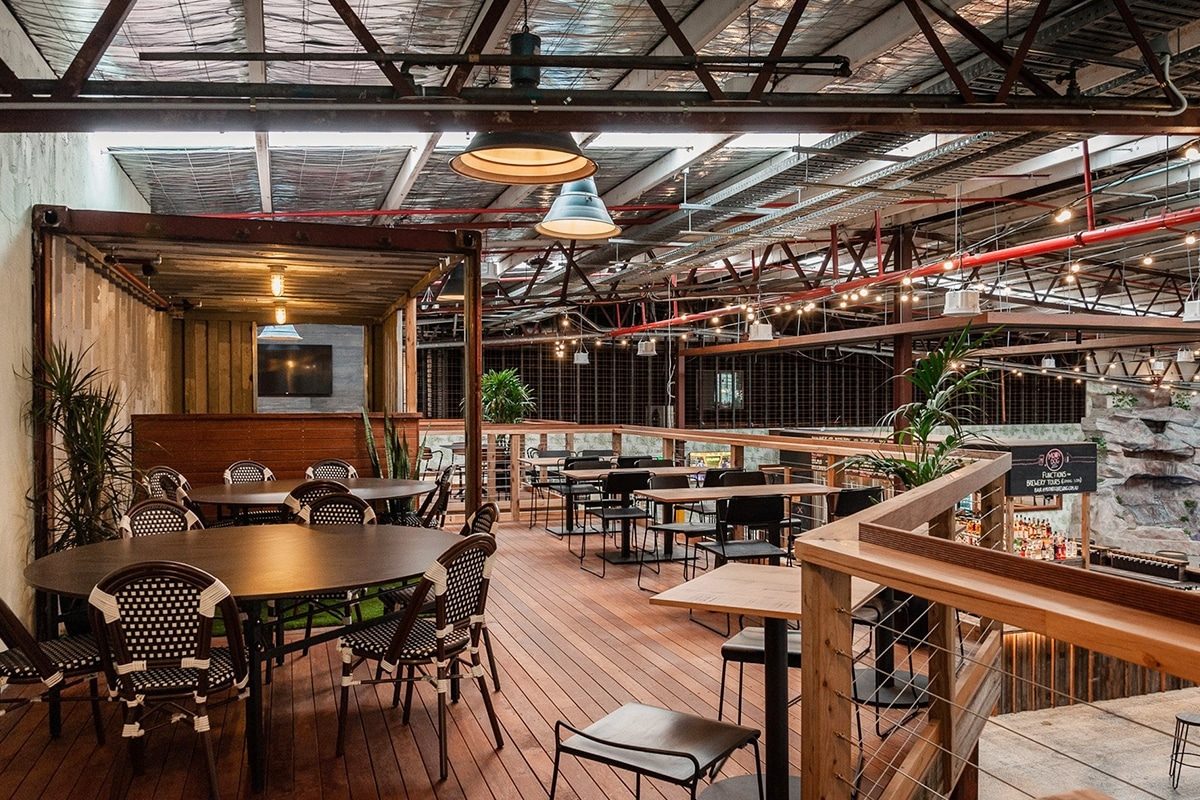
Summarize
Opening a brewery is a dream for many beer enthusiasts, but success in this industry requires more than just a passion for brewing. From market analysis and business planning to regulatory compliance and sustainability, there are numerous factors to consider before embarking on the brewery journey.
Market analysis and research are crucial for understanding the competitive landscape and identifying opportunities for differentiation. Business planning and strategy lay the foundation for success, guiding decisions on everything from location and facility planning to equipment selection and production processes. Legal and regulatory compliance ensure that your brewery operates within the bounds of the law, while sustainability and environmental responsibility demonstrate a commitment to the planet and community.
By addressing these key business issues with foresight, diligence, and strategic planning, aspiring brewery owners can pave the path to success, crafting not just exceptional beer, but thriving businesses that stand the test of time.
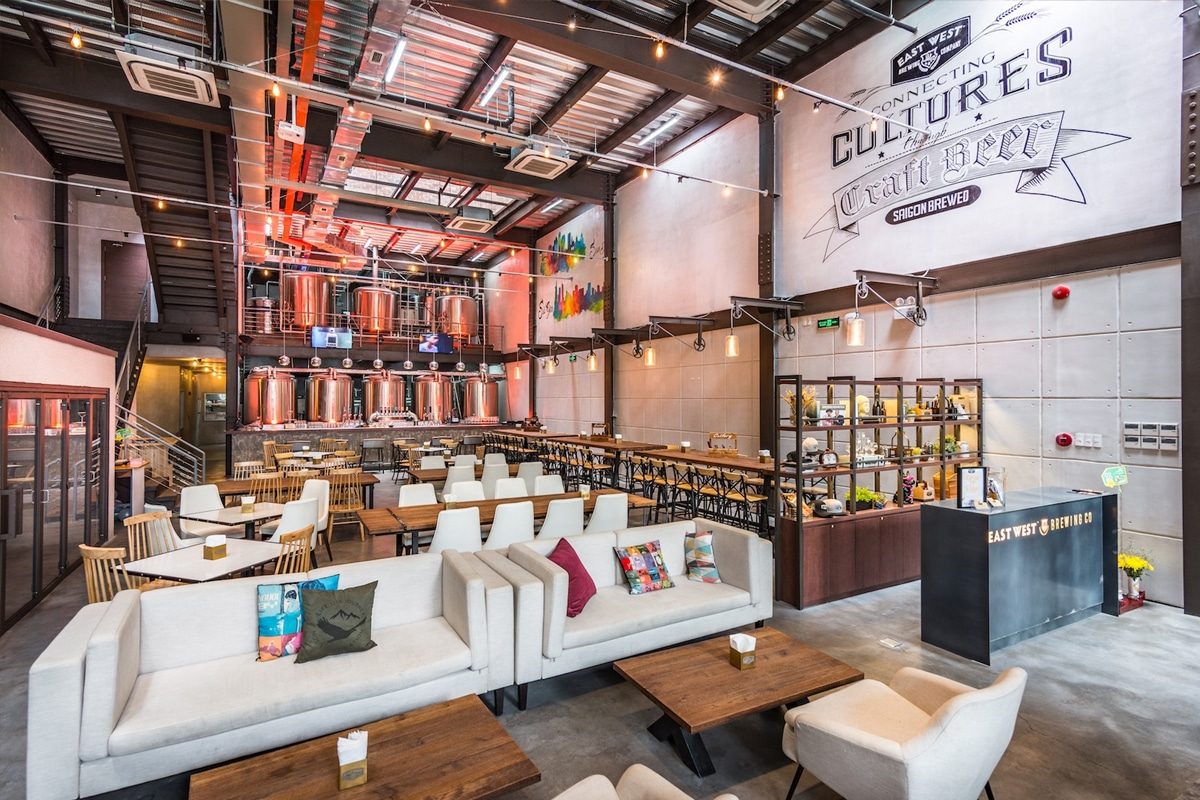
Get A Turnkey Brewery Solution
With ZYB Craft, aspiring brewmasters can harness a holistic approach to brewery establishment. From customized brewhouse design and equipment selection to installation, training, and ongoing support, ZYB Craft transforms brewery dreams into reality. Leveraging expertise, cutting-edge technology, and a commitment to quality, ZYB Craft ensures that every facet of your brewery aligns seamlessly.
By opting for ZYB Craft’s turnkey solutions, you not only access state-of-the-art brewing equipment but also benefit from a wealth of industry knowledge and support. Elevate your brewing journey with ZYB Craft and set the stage for a flourishing brewery that stands out in a competitive market.

